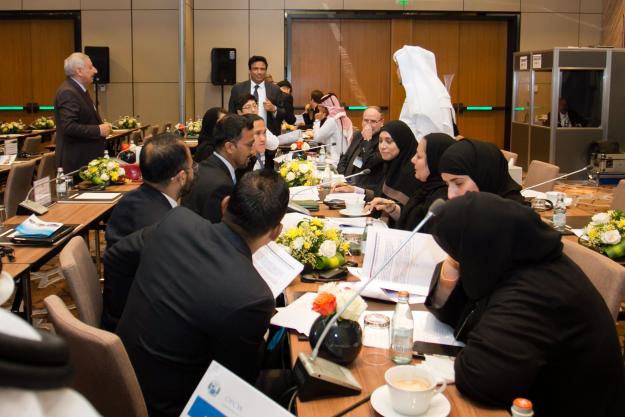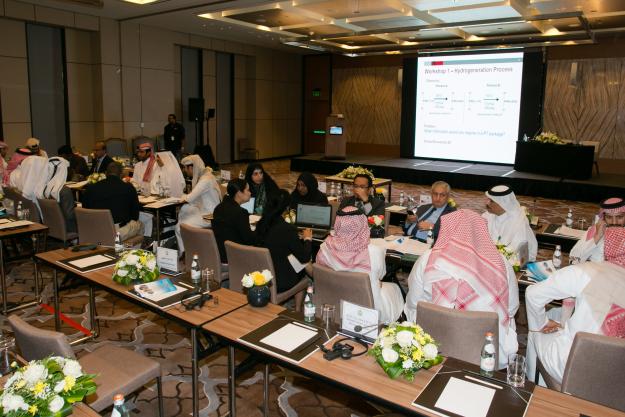
THE HAGUE, Netherlands — 11 February 2020 — The Organisation for the Prohibition of Chemical Weapons (OPCW), in collaboration with the National Committee for the Prohibition of Weapons (NCPW) of Qatar, organised a seminar in Doha, Qatar from 4-6 February 2020. The seminar brought together chemical safety and security specialists from the Asia region who shared their expertise and experiences to mitigate potential chemical risks in the region.
In his opening statement, the Chairman of the NCPW, Brigadier Hassan Saleh Al Nesf underlined the significance of chemical safety and security for economic and technological development, with the chemical industry playing an important role in growth and development.
Senior programme officer at the OPCW’s International Cooperation Branch, Dr. Rohan Perera, stated in his opening speech: “Since its inception in 2012, the Chemical Safety and Security Programme in Doha has evolved and has become a leading international forum connecting top experts in the field.”
He noted the number of participants and the level of participants’ expertise as representative of the strong cooperation between the OPCW and its Member States towards further strengthening chemical safety and security in Asia.

Participants, who included experts from National Authorities, the chemical industry, industry associations, policy makers and academia, shared their views on new approaches to chemical safety and security, the development of national action plans including process safety risk management, scenario based strategies to manage chemical safety and security risk as well as vulnerability assessment.
They also discussed human factor analysis on chemical safety and security management, and safety process audits in chemical plants and development of effective action plans.
Attendees highlighted the importance of practice-sharing, as well as education and outreach towards building strong chemical safety and security worldwide.
Forty-two participants represented the following eleven States Parties: Bangladesh, Iran, Iraq, Malaysia, Maldives, Pakistan, Philippines, Qatar, Republic of Korea, Sri Lanka and Vietnam.
Background
As the implementing body for the Chemical Weapons Convention, the OPCW, with its 193 Member States, oversees the global endeavour to permanently eliminate chemical weapons. Since the Convention’s entry into force in 1997, it is the most successful disarmament treaty eliminating an entire class of weapons of mass destruction.
Over 97% of all chemical weapon stockpiles declared by possessor States have been destroyed under OPCW verification. For its extensive efforts in eliminating chemical weapons, the OPCW received the 2013 Nobel Peace Prize.
